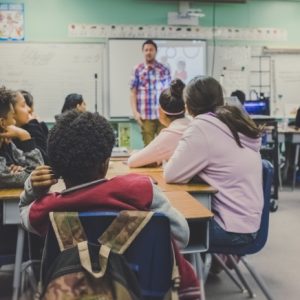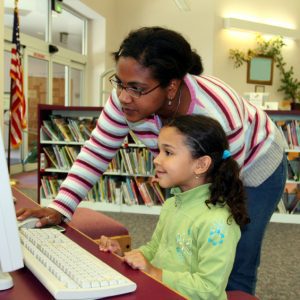Education

Latino families in Mecklenburg County value education – but don’t enroll in early education programs. Here’s why, and what we can do about it.
By Sarah Ostyn
The research is clear: 90% of the brain develops before age 51.
Experiences that occur during this period set the stage for everything that is to come, making early childhood an exciting and significant time in our lives. Children – especially immigrant children and those in low-income households2 – who participate in high-quality early care and education, also known as ECE, have higher educational attainment, resulting in stronger communities and local economic growth […]

Fourth Gambrell Faculty Fellows cohort will focus on different aspects of equity
As the Charlotte region reckons with both the immediate aftermath of COVID-19 and longstanding challenges such as segregation and educational inequities, the Gambrell Faculty Fellows program has named a new cohort of scholars to help illuminate the way to a more equitable community. The fourth cohort of Fellows will investigate a wide range of challenges, […]

Seeking a new path: Announcing the third Gambrell Faculty Fellows cohort
Our Charlotte region continues to wrestle with a vexing challenge: How can we improve economic mobility so that all of our community members can share the benefits of growth? It’s a big question, one that touches on everything from the justice system to the transit system, how much we make at our jobs to how […]

The power of active citizenship and civic engagement in seeking justice for youth
The COVID-19 pandemic and ongoing protests for racial justice have shone a spotlight on the social inequalities present in our country. This is especially true within the U.S. education system. The current state of our country highlights just how inequitable access to education is, and conversations around access to healthcare, affordable housing, poverty and racial […]

COVID-19 highlights educational inequities
The novel coronavirus, better known as COVID-19, has changed the world as we know it. This holds true for the field of education, particularly K-12 schools in North Carolina and across the U.S. COVID-19 has exposed glaring educational inequities that were present before the pandemic, and, in many ways, have been amplified during this crisis. […]

COVID-19 closes schools and brings on its own ‘summer slide’
Students lose 20% to 30% of their school year learning gains over the summer and research has found that students of color, students with disabilities and those from low income families experience greater summer learning loss than their peers — and now, the coronavirus pandemic threatens to compound these losses. The last day CMS students […]

Five things coronavirus could change in Charlotte
Closed bars, restaurants and breweries. Hundreds of thousands of employees working from home while trying to home-school children. Near-empty road and no toilet paper on the shelves. The immediate impacts from the coronavirus crisis are highly visible. But the virus could have more long-lasting and farther-reaching impacts beyond the immediate unemployment and economic disruption we’re […]

Irma and Ernesto Robledo: Creating a rural brain gain
This story is one of seven vignettes in the series Rural by Choice: Navigating Identity in the Uwharries. Education is often seen as the ticket out of a rural area. But the Robledo family has sought higher education – often in urban areas – to provide them with job opportunities so they can make their […]

How can we reconnect North Carolinians to opportunities and good jobs?
To move up the ladder of opportunity, there’s generally consensus that people need jobs that pay a living wage, where they can grow their earnings over time. But what’s the best way to get workers, especially low-income workers with barriers such as low educational attainment, connected to those jobs? That’s the focus of the ReCONNECT […]

Report tallies college and career readiness programs
The Charlotte-Mecklenburg Opportunity Task Force identified college and career readiness as one of three determinants with the greatest influence on an individual’s ability to move up the economic ladder. In other words, to improve economic opportunity in our community, we must improve college- and career-readiness, particularly among children and youth. To do this, we first […]